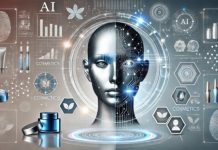Initially dismissed as a passing trend, AI today has evolved into a formidable, transformative force. Global businesses Workforce are experiencing a profound impact of AI. It is reshaping our daily lives and work routines. Reflecting on the lessons of the past year, one obvious realization emerges – AI’s evolution transcends temporary trends. Moreover, it signifies an irreversible shift in paradigms.
35% of enterprises worldwide have already adopted AI. Over the next two decades, almost every business and government organization will be navigating the world of AI and ML services.
Companies are embracing an AI business strategy in different ways. These methods were previously considered science fiction. For example, they include the introduction of customer service chatbots, AI-driven copywriting, and medical condition diagnosis.
This article delves into essential techniques and strategies. These can help an organization traverse the disruptive path and position its people as AI pioneers.
Key Takeaways
- AI is reshaping business and workforce dynamics, marking an irreversible shift rather than a passing trend.
- Enterprises face a high failure rate in AI initiatives, emphasizing the need for comprehensive AI training programs.
- Cultivating a culture of experimentation can drive innovation and enhance employee engagement in AI adoption.
- Organizations must address the ethical and societal implications of AI to ensure responsible use and equity in outcomes.
- Leadership champions play a critical role in fostering AI adoption, driving transformation, and aligning AI strategies with corporate goals.
Table of Contents
Investing in Comprehensive AI Training Programs
Surprisingly, 70-80% of AI initiatives fail owing to imprecise objectives and confusing R&D project management practices.
This is why it is critical to build strong training efforts suited to different skill levels inside the business. With the right technology advisory services and training, companies can guarantee that their staff can interact with AI systems. Furthermore, they can also contribute effectively to their design and deployment.
The perks include:
- Well-trained personnel who use AI strategies and technologies increase productivity. They achieve this by automating jobs, streamlining processes, and harnessing data to make educated decisions.
- AI-enabled teams promote innovation and creativity by investigating unique ideas and solving complicated issues with unprecedented agility and insight.
- Investing in comprehensive AI training improves employee satisfaction and retention. It does so by demonstrating a commitment to professional development and success within the firm.
- Organizations gain a competitive advantage by training their personnel in AI capabilities. This allows them to grasp opportunities and manage the changing environment of AI-driven sectors.
A Culture of Experimentation and Innovation
It entails creating an environment in which workers are encouraged to experiment with AI technology and research its practical applications. It features –
- A culture of experimentation promotes organizational agility. This approach allows for rapid response to market developments and technology improvements related to AI in workforce fields.
- Empowering workers to investigate AI applications accelerates creativity. This results in the discovery of new business possibilities and novel solutions for growth and distinction.
- Encouraging AI experimentation increases employee engagement. It does so by instilling a sense of ownership and acknowledgment for contributions to innovation inside the firm.
- Regular experimentation is a proactive method of risk reduction in AI adoption. This method allows firms to discover and fix possible issues early on. Thus, it reduces costly setbacks.
Addressing Ethical and Societal Implications of AI
It entails acknowledging the larger impact of AI technology beyond its technical capabilities. Moreover, it requires recognizing and proactively resolving the ethical concerns, biases, and societal implications that can result from AI adoption. Here is a more extensive explanation.
- Ethical Considerations: Companies can ensure that their AI systems adhere to moral ideals and social standards. These are the ones that include ethics in their AI development processes.
- Bias Mitigation: AI systems can unintentionally promote biases in training data. This often leads to unequal outcomes and prejudice. Addressing prejudice necessitates proactive steps like data preparation, algorithmic openness, and diverse representation in AI development teams.
- The broad use of AI technology: It has significant societal ramifications, including employment displacement, power upheavals, and cultural norms. Organizations must urge workers to think about the ethical implications of AI for their jobs.
- Norms and Guarantees: To ensure responsible AI deployment, organizations should include ethical frameworks and norms in their AI development processes. This guarantees that AI systems are built and used with integrity.
Cultivating Leadership Champions for AI Adoption
It is crucial for driving business transformation and preparing an AI workforce. It includes –
- Identifying Leadership Champions: AI adoption leaders have extensive knowledge of AI technology. These champions can come from all levels and departments of the firm, from C-suite executives to departmental managers.
- Empowering Advocates: Providing leadership champions with resources, support, and authority to push for AI adoption. This might include access to training programs, cash allocations for AI efforts, and the opportunity to work with cross-functional teams.
- Communication: Leaders can boost employee confidence and commitment. They can achieve this by communicating the benefits of AI adoption, resolving concerns, and offering direction during the transition process.
- Engagement and Learning: To ensure a seamless transition to an AI-ready workforce, leadership advocates engage stakeholders. They connect AI plans with corporate goals and build a culture of continuous learning and innovation.
Paving the Way for an AI-ready Workforce
AI continues to change our professional world. Modern company executives need to do more than just grasp the possibilities of AI. They must deliberately cultivate AI in the workforce to deal with the ethical quandaries.
As per a Nextgov/FCW survey, 44% are saying they are planning to invest in AI systems. By employing essential strategies (as stated), firms can manage to understand the intricacies linked to the AI ecosystem. Additionally, they will promote long-term development and innovation.
Finally, by emphasizing ethical issues and empowering employees, businesses can interact responsibly with AI strategies and technology. This approach will allow them to adapt to the AI-driven future and shape it for the benefit of society as a whole. While starting this revolutionary journey, it is apparent that the road to developing an AI-ready workforce of the future is lined with chances for creativity, collaboration, and ethical leadership.











